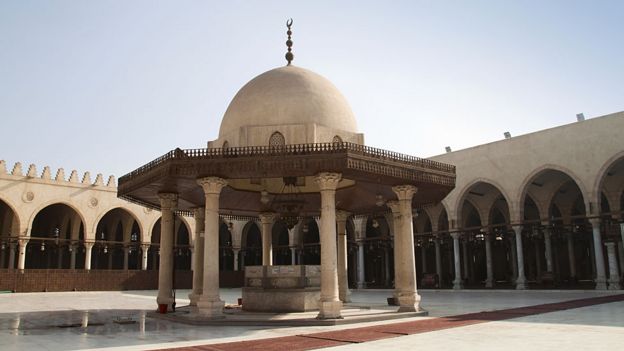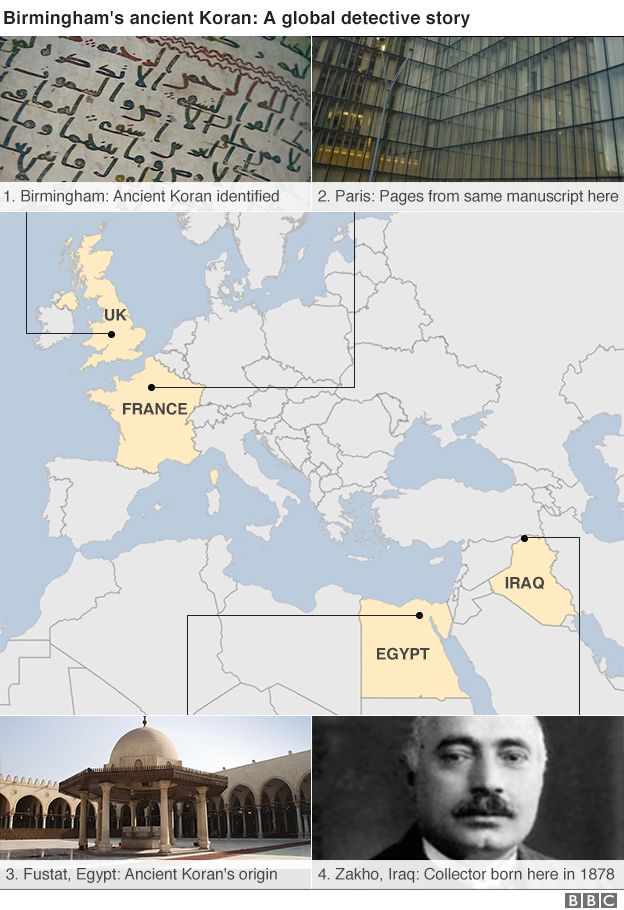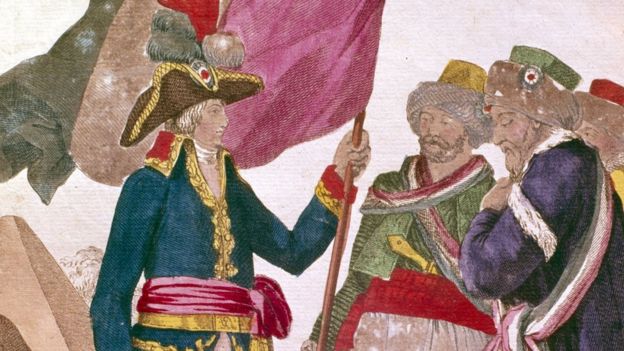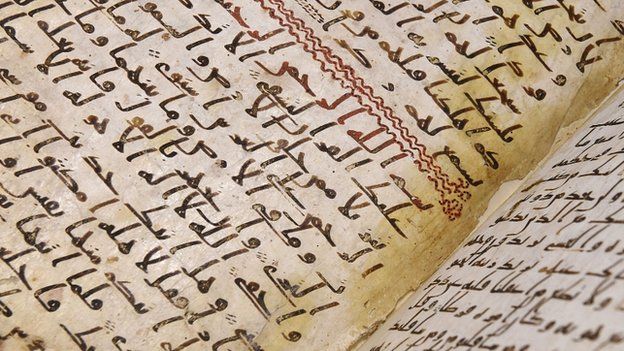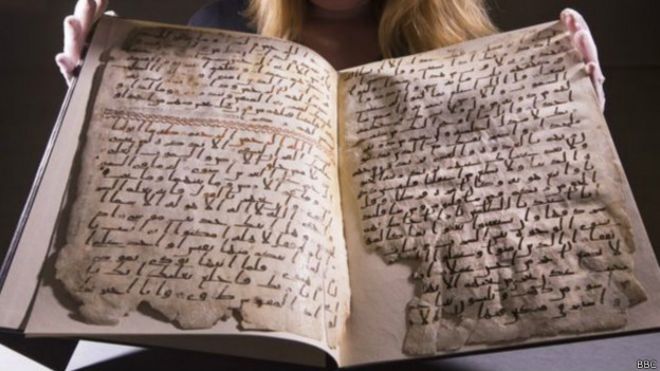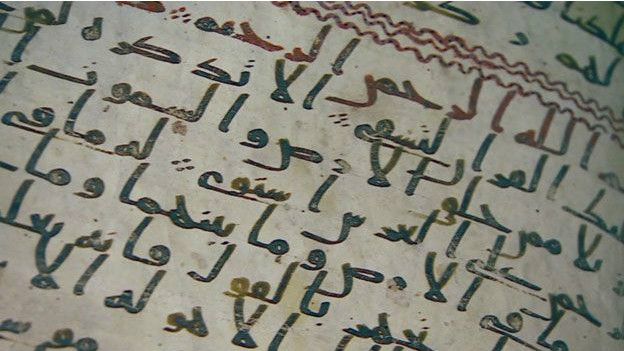
God does not change the condition of a people’s lot, unless they change what is in their hearts. (13:11)
Keep Reading >> http://peace-forum.blogspot.com/2017/07/rise-and-fall-of-nations-law-of-quran.html
Don't Discard Quran: Quran is the Only Last, Complete, Protected Divine Book of Guidance, without any doubt, all other books are h...

In the case of pre-Islamic society, the Arabs were divided into different tribes. There was no state, or its institutions, or legal system that could unite and bind them. Therefore, each tribe had a history, culture, customs, traditions, rituals, and a past which maintained the continuity of its identity.
The common events remembered were tribal wars and festivals, which provided them with an opportunity to unite. The famous festival of Okaz in particular, which was held annually in Taif, would bring together all the tribes that were scattered in far off places. Besides commercial activities, a poetic competition would also be organised and the best poem would be hung up in the Kaaba as a symbol of honour for the poet (Mu’allaqat).
This pre-Islamic past is known as Ayyam (days). This genre of historiography remained popular among the tribes even after their conversion to Islam.
When the Arabs conquered Syria and Iraq, they found cantonment towns of Kufa and Basra, where poets and storytellers would recite tribal history to gatherings of soldiers to inspire them with their glorious tribal past. The past events were verbally passed on from one generation to another, as they were narrated in poetic form which charged the listeners emotionally, creating in them a pride for their tribes. Later, the Arab conquest of Islam was included in the historiography of Ayyam. Therefore, it became a historical source of not only pre-Islamic, but also of the early Islamic period.
In the absence of original manuscripts, court narratives are described as history
On the contrary, unlike Arab society, Yemen had a state, institutions, as well as a legal system, which united all tribes of the society as one. In the first century Hijri (Islamic calendar), the history of Yemen was written down, marking the beginning of historiography in Islamic tradition. In pre-Islamic Arab tribal society, each tribe had a genealogist who traced the history of the tribe and the origin of the families and their ancestors. Besides him, there was a ravi or narrator who would describe important historical events verbally. In its present meaning, it was used for the first time in the 9th century of the Christian era, therefore the task of history was to determine the occurrence of events, their time and era chronologically.
History books written before the year AD750 are not available any more. However, there is evidence of some historians’ work but these books are not accessible in their original form. Later on, when history became popular, their pupils and admirers popularised history written by them on the basis of memory. All historical sources of the Umayyad period were either destroyed by the Abbasids or disappeared with the passage of time. Therefore, the systematic writing of history started during the Abbasid period.
Historiography radically changed after the Muslim conquest of Iraq and Iran. When the people of other nations and races converted to Islam, they also brought along with them not only their cultural values and norms but also their history. This expanded the boundaries of history and included in it the non-Arab historical past of other nations. In ancient Arabia, the word Khabar or news was used to transmit historical and important information and those who narrated it were called as Akhbari and Ravi. Akhbari historians collected important pre-Islamic events in order to prove the cultural and political domination of the Arabs, in view of the growing influence of the Persian culture.
When Islamic power extended and number of events increased, the method of Khabar could not convey them easily to everyone; therefore, a new genre known as Annals was introduced through which important events of a year were collected and written down, taking care that these events related to each other and expressed context. In this way, society acquired historical consciousness.
Historiography further changed with the expansion of Islamic states and the emergence of new political, social and economic institutions. To handle past sources of history, a new system, known as Tabaqaat, was devised and in each Tabaqa the history of every ten years was described. It was also customary to write the history of poets, ulema and scholars related to a century, such as poets of the 8th century and ulema of the 4th century.
With the establishment of kinship in Islamic society, historiography became dynastic. In dynastic history, court historians focused their narratives on activities of the rulers, the aristocracy and scholars.
Historiography reflects the social, cultural and economic conditions of a society. If a historian is patronised by the royal court, his observations are limited to the activities of the rulers and aristocrats and he only depicts the high culture of his time.
On the other hand, an independent historian covers events beyond the royal court and highlights the contribution of common people and portrays the popular culture of a society. However, an active and dynamic society contributes academically and militarily, providing history with plenty of material to narrate and analyse. But if a society is stagnant and sterile, history becomes barren and unattractive.
Dynastic history covered only those events which related to the ruling classes such as wars, administration, and contribution of literature, music, paintings and architecture. Common people generally remained absent from their narratives.
Past present: The historiography of early Islam
by Mubarak Ali, dawn.com
http://www.dawn.com/news/1265433/past-present-the-historiography-of-early-islam
In the early Islamic period, the discipline of history hadn`t been fully developed and had no significant impact on the consciousness of Arab society. Scholar Ibn Hazm (d.1064 AD) cxplains that religion was a source of understanding history; this transformed history into a branch of religion, which in turn, changed its structure and form.
The Arabs were proud of their poetry and had little interest in any other sources of knowledge. This can be interpreted from the fact that in the writings of Al Kindi (c. 873), Al Farabi (d. 950 AD) and Ibn Sena (d. 1037), there is no mention of history. As their source of knowledge was Greek translations, they took more interest in philosophy than in history.
Later on, even after the subject of history had evolved and transformed as a major source of past events, it did not find the kind of recognition that other sources of knowledge enjoyed. For example, in the encyclopaedic work Rasa`el Ikhwan al Safa, the topic of his-tory is dealt with at the end thus denoting the insignificance attributed to history at the time.
Scholars, therefore, had limited knowledge and perspective of history.
It was believed that studying pre-Islamic history was of no use as it belonged to the days of ignorance (Jahiliyyah).
According to these scholars, only Islamic history should be studied because it was based on truth and veracity.
History as a subject was regarded as inferior to the extent that scholars would not take it up as a profession. Those who were involved in history writing were either courtiers or religious scholars and jurists; their reputations were based on their other professions and not as historians. For example, al Tabari (d. 923 AD) was known as a religious scholar and Ibn Khuldun (d.1406 AD) was renowned as a Qazi, although both men were great historians as well.
When independent Muslim states emerged, the rulers appointed court his-torians to write the history of their reign.
These men were usually awarded this task in addition to their administrative posts.
As Muslim society was divided into different religious sects, history was used by each sect to prove their viewpoint and the righteousness of their ideology. As a result, history became subordinate to religion.
History was written either with a sense of devotion or in opposition to other sects, which in turn, caused prejudice and fuelled sectarian hatred.
History suffered because each sect tried to write history in order to prove their truthfulness. In the process, history was distorted and past events were misquoted.
It, therefore, became impossible for a Muslim historian to write critically because faith and history were so intensively integrated with each other that they could not be separated. History was written between the bounds of theology, often reduced to sermonising andpreaching ethical values only.
At a time when writing history was confined to reigning monarchs, royal dynasties and aristocracy, historians wrote only about things related to the court, its ceremonies, administration, collection of taxes, war strategy, organisation of army, conspiracies and intrigues. The object of such history was to train young princes and ruling classeson how to govern and control the affairs of the State.
However, the characteristic of Arabic historiography was to include different topics related to society besides the narrative of the ruling elite. On the other hand, Persian historiography dealt only with the history of rulers, aristocrats and state officials, and did not mention the contribution of other classes.In the modern period, Muslim historiography has changed drastically.
In every Muslim country, historians are writing history on the basis of nationalism.
They are now proud of the pre-Islamic past of their countries and include it as a continuity of their civilisation. For example, the Egyptians are taking pride in the Egypt of Pharaohs, the Syrians and Iraqis are tracing their roots to the Sumerian, Akkadian, Babylonian and Assyrians civilisations.
This approach changed the structure of Muslim historiography and the spirit of nationalism secularised it. For example, Lebanese Christians richly contributed to the writing of history, and produced works such as Philip Hitti`s book History of the Arabs and Albert Hourani`s A History of the Arah Peoples.
Muslim historiography was further enriched when Muslim countries struggled against European imperialism. At this stage, politicians used past Muslim glory and grandeur to inspire people to fight against foreign powers. This nationalist history also included religious minorities as a part of their nationhood.
This politicisation of history resulted in a distortion of events to justify particular political points of view. And perhaps it is this dynamic that still begs the question: did Muslim societies learn any lessons from history, or was history treated as entertainment`?
http://epaper.dawn.com/DetailImage.php?StoryImage=22_05_2016_424_002
